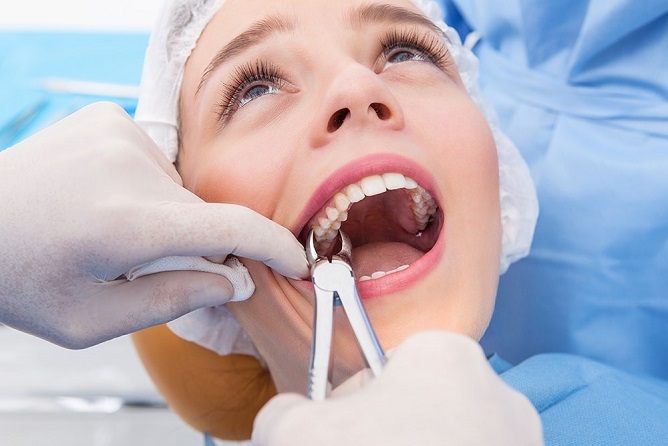
With years comes wisdom, as well as wisdom teeth!
As you are aware, wisdom teeth are the third pair of molars at the mouth's rear end. Everyone has listened to some horror and gut-wrenching stories about wisdom tooth removal. While in actuality, the experience is not harrowing in all cases. If you are the one who fetches cold sweats when hearing about wisdom tooth extraction, you are in the accurate place!
This article will support you in comprehending wisdom teeth, when they are required to be removed and how to quickly recover from this dental surgery.
What Are Wisdom Teeth?
Wisdom teeth, called third molars, are the last permanent teeth. In most cases, wisdom teeth develop in the late teens or early twenties. In general, if 85% of people have wisdom teeth, 65% typically require wisdom teeth removal. While in some people, wisdom teeth do not even grow up.
When Do Wisdom Teeth Have To Be Removed?
Wisdom teeth ought to be extracted in the situation of misalignment and impaction. In some cases, wisdom teeth develop horizontally, while in other cases, the teeth get impacted because the teeth merely partly grow out through the gum.
Under both circumstances, wisdom teeth can induce several troubles for a healthful mouth. Consequently, a removal surgery should be performed to evade dental problems like:
- Jaw discomfort
- Ailments or Infections
- Gum infection
- Dental partially erupted third molars
- Halitosis or bad breath
- Wound to adjacent teeth and bone
- The appearance of a cyst in the jaw bone
What To Expect During The Extraction?
The dentist or oral surgeon utilizes different types of anesthesia depending on the complexity of the process. Three types of anesthesia are there: local, general and sedation. After the dispersion of the anesthetic in the gum tissue, the dentist creates an incision. That ultimately uncovers the bone as well as the tooth. Then the dentist extracts the bone for the purpose of accessing the tooth root. In the end, the dentist extracts the wisdom tooth and cleans the area of any remnants. Once this wisdom tooth removal process has been done, the dentist latches the hollow impairment with stitches and puts a gauze bandage on the removal area to stimulate the appearance of the blood clot.
Following the surgery, there will be a healing duration that will survive for some days. During this course, the occurrence of some pain, swelling or discomfort is entirely normal. To assemble a quick recovery, here are some useful pointers that you can follow after the extraction procedure:
● Keep a Tab on Your Bleeding
Post your extraction surgery, the oozing out of some blood is normal. While rinsing, you can even encounter redness in the saliva. It is highly suggested that to control bleeding, you should rinse first and then wrap a gauze pad on the spot. It would be best to sit erect and avoid energetic exercise for a few days to minimize the bleeding.
● Do Not Forget Your Pain Management Medication
A wisdom tooth extraction induces pain in the initial days of the surgery, so if your dentist or oral surgeon has prescribed you some medicines to reduce the pain, do not forget to take them in a timely manner. But, under any circumstances, do not take an over quantity of painkillers without consulting your dentist.
● Retain Proper Oral Hygiene
You will be advised not to rinse, brush or mouthwash for at least the first 24 hours after the surgery. After that particular time, if you have resumed brushing, make sure to brush gently around the wound. You can utilize an antibacterial mouthwash, or you can also use warm salt water to rinse your mouth gently.
● Watch Your Fluid Intake
Healthy fluids are highly urged post-surgery. These fluids possess Non-artificial (homemade) juices and a lot of water. It would be best if you dodge alcoholic and caffeinated hot beverages after the procedure for some period. You should also detour drinking from a straw till some time as the sucking motion can force the blood clot to dislodge and can construct a dry socket.
● Be Conscious About Your Diet
As dentists suggest, for the first 24 hours, you should only consume soft foods. After 24 hours, do not directly switch to solid foods; rather, eat semi-soft foods and then take solid foods. Avoid some food that can get stuck in the socket or raise the wound's pain.
A bottom line
As you learned above, your wisdom tooth removal expedition can be much more comfortable with the right precautions. Do not overlook enduring proper medication and a balanced diet. We expect that these suggestions will be helpful for you after your surgery.
Although, you can also construct this period less painful with the finest and most experienced dentists at HealthONE! HealthOne has a skilled team of dentists assuring the most satisfactory dental experience and has been providing services as emergency dentist toronto for years.






